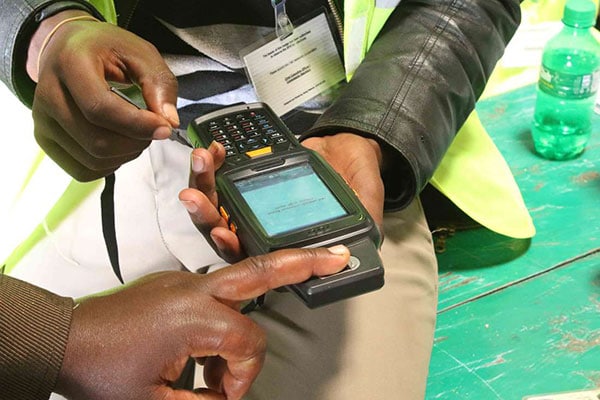Most East African countries are on a path to adopting digital IDs. While others express mixed reactions about the readiness for the documents, others have yet to start conversations about biometric identification.
KYC processes are crucial in preventing fraud, money laundering, and ensuring compliance with local and international regulations. However, the requirements and implementations vary across African countries due to varying regulatory frameworks and technological infrastructures. Besides, Africa’s digital economy is growing fast, with a population of 1.4 billion. But according to the World Bank, around 500 million Africans still lack proper identification documents as of 2020. This highlights the importance of identity verification solutions in closing the identity gap and supporting Africa’s digital economy.
Tanzania is okay with traditional IDs
Tanzania is the only country in the East African region that has yet to make any notable development toward adopting digital IDs. However, the nation’s ICT regulator has since directed that SIM card registration include biometric identification.
Tanzania’s sim card registration process involves biometric verification to ensure the authenticity of mobile phone users. The registration process is overseen by the Tanzania Communications Regulatory Authority (TCRA), which issued a directive in 2019 requiring all citizens to register their sim cards with their national identification documents. The registration process requires individuals to provide their fingerprints and other biometric data, which are cross-checked against the information on their national ID cards. This biometric verification aims to prevent fraudulent activities and enhance security in the telecommunications sector.
In February 2023, the Tanzanian government deactivated 970,000 irregularly registered SIM cards to curb fraud. This action followed the TCRA’s directive for citizens to register their sim cards biometrically. Smile Identity’s report clarifies that the campaign achieved significant success, with 60.47 million out of 62 million mobile users registering before the deadline and a notable drop in sim card fraud cases. Kenya carried a similar campaign for the better part of 2022.
Kenya’s second attempt at digital IDs
Kenya, on the other hand, is set to fully embrace digital identity for its citizens. Some details have been revealed about its upcoming digital ID system. Set to launch in September 2023, the unique personal identifiers (UPI) system comes with advanced security features like iris and facial biometrics and fingerprint identification, similar to the existing identity documents. The new digital ID was first announced by Kenya’s ICT cabinet secretary Eliud Owalo, who clarified that the IDs would be official in a month. The new IDs will replace the failed Huduma Namba launched by the previous administration in 2018.
Read more: Kenya discontinues Huduma Namba, takes another try at digital identities
The new ID system aims to offer improved online ID authentication possibilities while giving Kenyans more control over sharing their data. Does this imply that Kenyans will not be compelled to adopt the new ID? According to Owalo, the IDs will not be mandatory. However, it should be remembered that the state said the same thing about Huduma Namba
Uganda isn’t too sure about digital IDs
In May 2023, Uganda’s national identification and registration authority (NIRA) revealed that they had issued citizens more than 26 million National Identification Numbers (NINs). According to Smile Identity, an identity verification platform, this represents over 95% of the adult population coverage within nine years of initiating the ID program.
While NIN’s coverage is extensive, many Ugandans still do not possess physical ID documents. NIRA said they printed over 19 million national ID cards, but only 16 million have been collected, leaving over three million cards unclaimed. The agency has urged registered Ugandans to collect their cards before transitioning to a digital ID system. The same issue was observed in Kenya when over 2.9 million Huduma Namba cards remained uncollected as Kenyans protested the document’s existence.
In April 2023, Uganda’s auditor general, John Muwanga, expressed concerns about the country’s readiness for transitioning to new digital ID cards. The cards will have citizens’ electronic and biometric data via implanted microchips, and the transition is set to start in 2024. NIRA stated they are in advanced planning stages and have enough time to prepare.
Ethiopia wants digital IDs for financial transactions
In 2022, Ethiopia’s national identity program (NDIP) initiated the Fayda ID enrollment, with over 1.4 million Ethiopians already enrolled. Then in March 2023, the country approved a crucial Digital Identity Proclamation bill, paving the way for a modernised ID system and potential national development.
The national bank of Ethiopia and the national identity program recently announced plans to make the national digital ID, Fayda, mandatory for all transactions. According to Smile Identity’s report, with approximately 23.7 million people having bank accounts, the Tanzanian government’s initiative aims to make the Fayda ID mandatory for bank customers. This requirement is for conducting KYC checks and remote onboarding, intending to reach 45 million enrollments by 2024. The move is expected to enhance transparency and security in Ethiopia’s financial sector.
Rwanda’s approach is unique
Rwanda’s approach to digital IDs takes a different approach that seeks to be all-inclusive. According to the report, the Rwandan parliament is working on a more inclusive ID system to cover children and stateless people. The proposed amendment allows the Rwanda Single Digital System (SDID), funded by the World Bank, to close gaps in the existing ID architecture within 3 years. SDID aims to address gaps and improve efficiency in Rwanda’s existing ID architecture by incorporating different identification data sources, such as biometric information, demographic details, and other relevant data.
Tanzania’s hope for personal data protection
Tanzania has not disclosed the reasons behind its delay in adopting digital IDs as neighbouring countries continue introducing them as standard documents. One could argue that digital IDs store extensive personal information, such as name, date of birth, address, and other identifying details, making them susceptible to data privacy concerns. Nevertheless, Tanzania has taken a step forward by enacting the Personal Data Protection Act in 2022, establishing essential guidelines for gathering and handling personal data within the country.
The decision of whether or not to implement digital IDs is a complex one. Governments should also consider educating their citizens about the significance of such documents to avoid problems similar to those witnessed in Kenya, where the residents rejected the idea of Huduma Namba, leading the government to abandon it. The government lost KES 15 billion ($105 million) in the process.





















